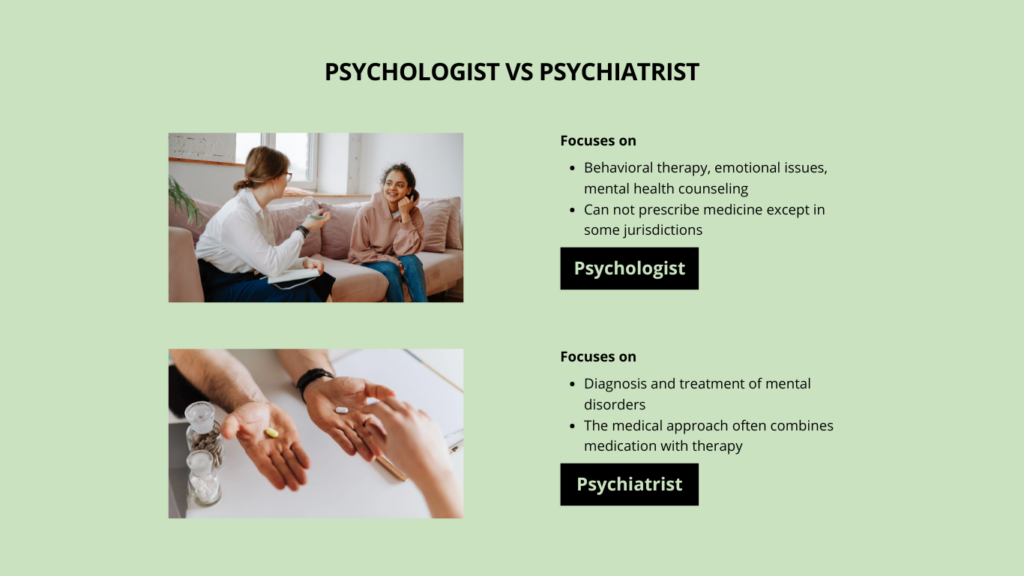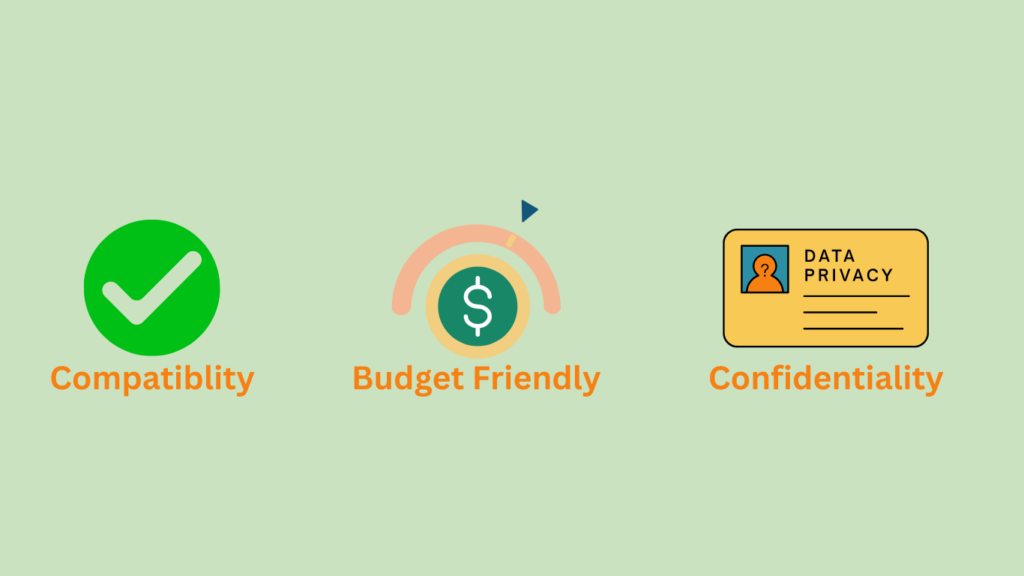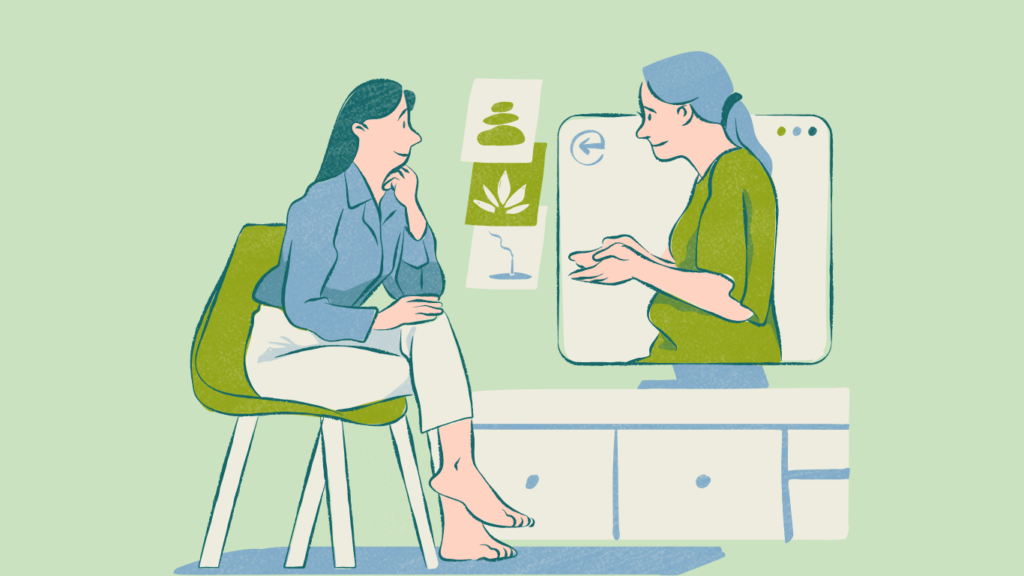There is a common misconception about therapy, where most people immediately think that visiting a therapist means that you have a mental health disorder. Maybe you’re struggling to connect with others or make sense of your emotions. Or perhaps you’re not sure why you feel the way you do, but you know something feels off.
The problem is that psychological trauma is much more difficult to diagnose than physical injury. It’s difficult to tell the depth and scope of one’s emotional pain. Therapy can help with all of that.
If you’re not sure where to begin or what kind of support you need, that’s okay. Therapy is for anyone who wants support or simply a space to talk things through.
In this blog will also explore the kind of therapy you should look for, do you need therapy or not and what you should look for when you are looking for therapy. We will try to help you take the first step toward finding the support you deserve.
Table of Contents
How Do You Know If You Need Therapy?
Everybody can benefit from therapy. All of us in our lives go through one form of emotional trauma to another. Therapy isn’t just for people dealing with big crises or mental health diagnoses. It is for anyone who feels they could use some extra support or guidance to deal with life’s challenges.
But do you need therapy? If you still find yourself in two boats, ask yourself these questions:
- Do you often feel anxious, stressed or sad even when there’s no clear reason?
- Are your relationships feeling strained or harder to manage?
- Do you find it tough to concentrate, enjoy things or feel motivated?
- Are you struggling to cope with any major life change, like a breakup, grief or even positive changes that feel overwhelming?
- Do you feel like you’re “keeping it together” on the outside but breaking down on the inside?
Therapy is like having a judgment-free space where someone listens to you (really listens) and helps you unpack what’s going on. They are not going to fix you because you are broken, but they help you understand yourself better and manage your emotions.
Related Post: Multidimensional Depression Test: A Tool for Understanding Mental Health
When Does Therapy Become a Necessity?
There are some people who might require therapy more than others and they might be in dire need of it. Below could be the situations where an individual should consider choosing therapy.
- Self-Harm Tendencies: You find yourself resorting to harming your body as a way to cope and are not completely sure of the underlying feelings behind it.
- Difficulty Managing Emotions: When you feel like your emotions consist of constant anger, sadness or anxiety. You could also be unsure about the type of emotions you are dealing with.
- Substance Abuse: Using alcohol or drugs to numb or escape feels like a temporary solution, but it keeps worsening the challenges you’re facing.
- Traumatic Life Events: Events like losing a loved one, surviving abuse or facing a life-altering incident can leave emotional scars that therapy helps you heal.
- Decrease in Performance: If work or school feels harder and you’re not functioning like you used to anymore.
- Relationship Problems: You are continuously struggling to communicate, feeling disconnected or facing recurring conflicts.
You don’t have to have all the answers! Taking that first step is enough. And honestly? You deserve that care.
What Do You Need to Know About Your Therapist?

When starting, it can be confusing to know who to see. Well, psychology as a whole is a vast subject and there are various types of psychologists. There are 3 primary roots that you can take. Let’s have a closer look.
Psychiatrists
A Psychiatrist is a medical professional holding an M.D. or D.O. They work with individuals who need medication in addition to therapy. They are the ones that are allowed to prescribe medicines for mental health disorders. They’re great if you need a combination of therapy and medication for things like depression, anxiety, ADHD, schizophrenia, etc. you can take the root of going through a psychiatrist.
Psychologists
When it comes to psychologists, there are two main types you might come across: clinical and non-clinical.
- Clinical Psychologists: They are licensed professionals trained to work with a broad range of psychopathological issues like anxiety, depression and trauma. They use various therapeutic techniques like Cognitive Behavioral Therapy. They often work with Psychiatrists to help you provide complete care for your mental health issues.
- Counseling Psychologists: They often have a doctoral degree (Ph.D. or Psy.D.) and are qualified to provide in-depth therapy, but they cannot prescribe medication. They help you deal with better with life stressors. They will deal with a range of social and psychological issues such as relationships, family issues, career and academics. Here they are not dealing with someone with severe mental health issues.
Things to Consider While Choosing a Therapist

It is very important that you are super comfortable with whoever your mental health practitioner is. Whether it is a psychiatrist, clinical psychologist or a counseling psychologist. Often it can take a couple of tries to figure out who is right for you and that is completely normal. We have created a checklist for you that you can follow to ensure that the person that you are taking therapy with is in fact a good fit for you.
- Get Super Specific
Some people feel more comfortable with a therapist of a specific gender, while others may prefer not to have a preference. Having a shared understanding can help you feel more at ease. A therapist who understands your cultural context can help you feel more heard and respected. It’s also important to choose a therapist and look for a therapist with experience in the area you need help with, whether it’s anxiety, trauma, relationship issues, etc. If you’re part of the LGBTQ+ community, finding a therapist who is not only inclusive but also truly understanding of your unique experiences can make a difference.
- Cost of Therapy
Therapy can get pretty expensive. If you are someone struggling to make ends meet and you really want to invest in therapy, there are several low-cost options you can take. A couple of online platforms and apps are there that have the best plans according to your budget and needs.
You can approach government hospitals, free clinics or clinics that are run by psychological institutes. Although these places offer therapy for free be mindful of the waiting time that you may need to face. These places do not offer the freedom of choosing your preferred therapist or flexible timing. However, this can be a great option if you are in dire need of therapy and want to share your emotions with someone.
- Confidentiality
Confidentiality is the major factor, especially when sharing your private information. Confidentiality is a legal and ethical requirement in therapy and therapists are bound by strict privacy laws (such as HIPAA in the U.S.) to protect your information. Make sure you sign the confidentiality form with them to ensure your information is safe and is not shared with anybody including your family members without your consent.
Is Online Therapy as Effective as In-Person Sessions?

Online therapy can be a game-changer for you if you need mental health support but aren’t really sure how to fit in. It is flexible, private and accessible from the comfort of your own space. With this, your first step towards healing is made even easier. Plus, with many options for affordability, diverse therapy styles and extra resources like mood trackers or meditation tools, online therapy is specifically designed to meet your exact needs.
Here’s why online therapy might be right for you:
- Accessible from anytime, anywhere.
- Choose session times that fit your busy life.
- Budget-friendly than traditional in-person therapy.
- You’re free from any travel stress.
- Find the right therapist that suits your needs.
- Access to additional resources at your fingertips.
A Word From The Mindwise
Hope we have made it a little easier for you to choose the right type of support you need. It’s totally okay if you don’t have a big, clear reason to try therapy. The best way to decide is to check in with yourself. If therapy doesn’t feel right for you at the moment, that’s okay!
But if you’re even a little curious or open to giving it a shot, it might be worth exploring. And remember, you can always change your mind down the road if things feel different later.
